Paideia seeks to instill in the hearts of its scholars, staff and families the power of critical thinking, using one’s voice, and taking ownership to solve problems. This culture of personal and public leadership enables individuals to reach their highest potential.
Paideia Academies has adopted the Leader in Me program and the principles of Stephen Covey’s book The 7 Habits of Highly Effective People. It has become a widely used and highly successful leadership development program for major corporations, schools, and individuals around the world. The 7 Habits are introduced at the Kindergarten level and incorporated in all learning and activities throughout the student, staff, and family experience at Paideia Academies. As the school year unfolds, scholars learn how to apply the 7 Habits to their daily life.
We believe these foundational principles are so important that we highly encourage students to use the same language and approach at home as they do at school. As the school and family connect in support of one another, our scholars form simple yet powerful habits. As a result, the leadership and life skills that develop become the backbone for success in life – college, career, citizenship and family.
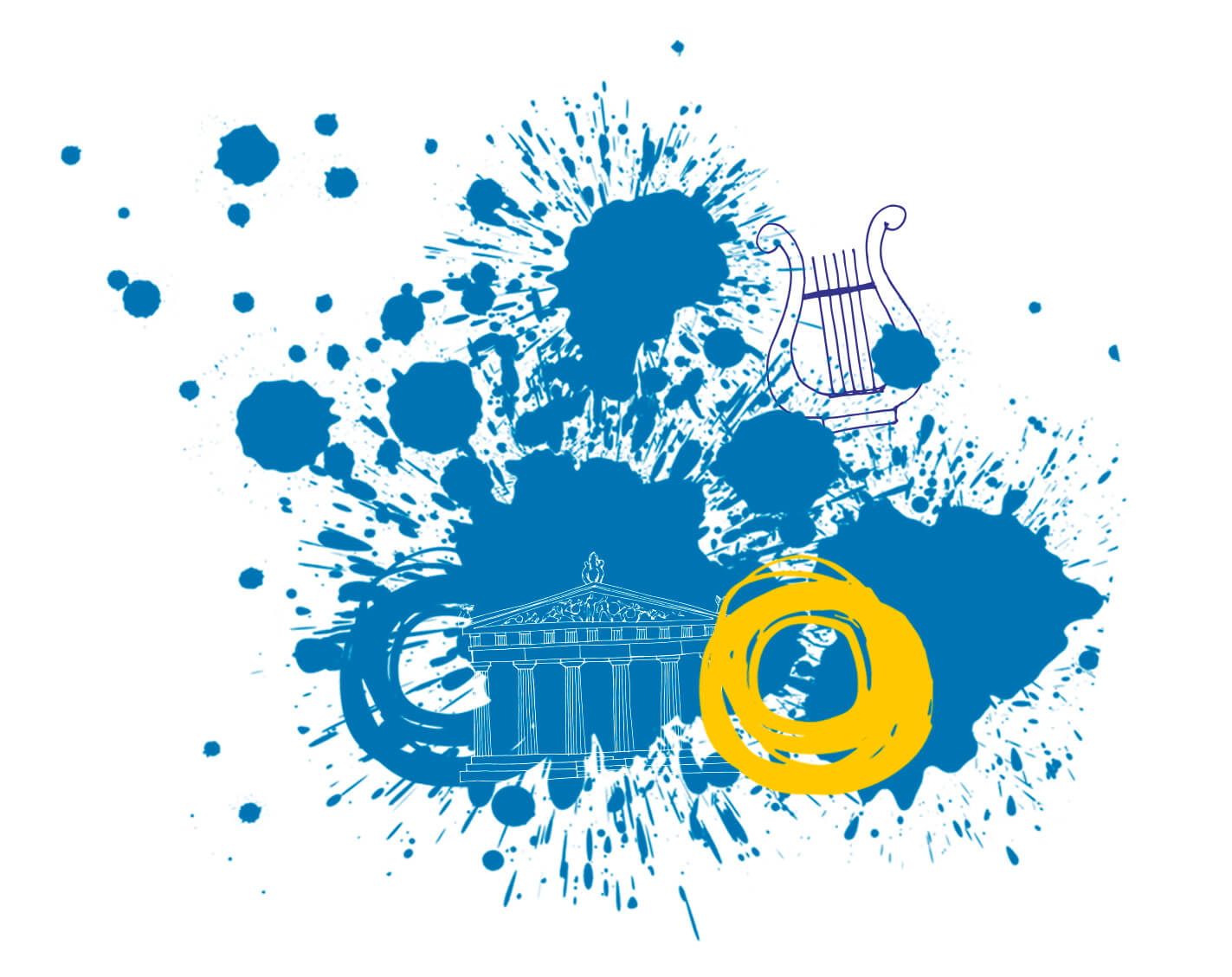

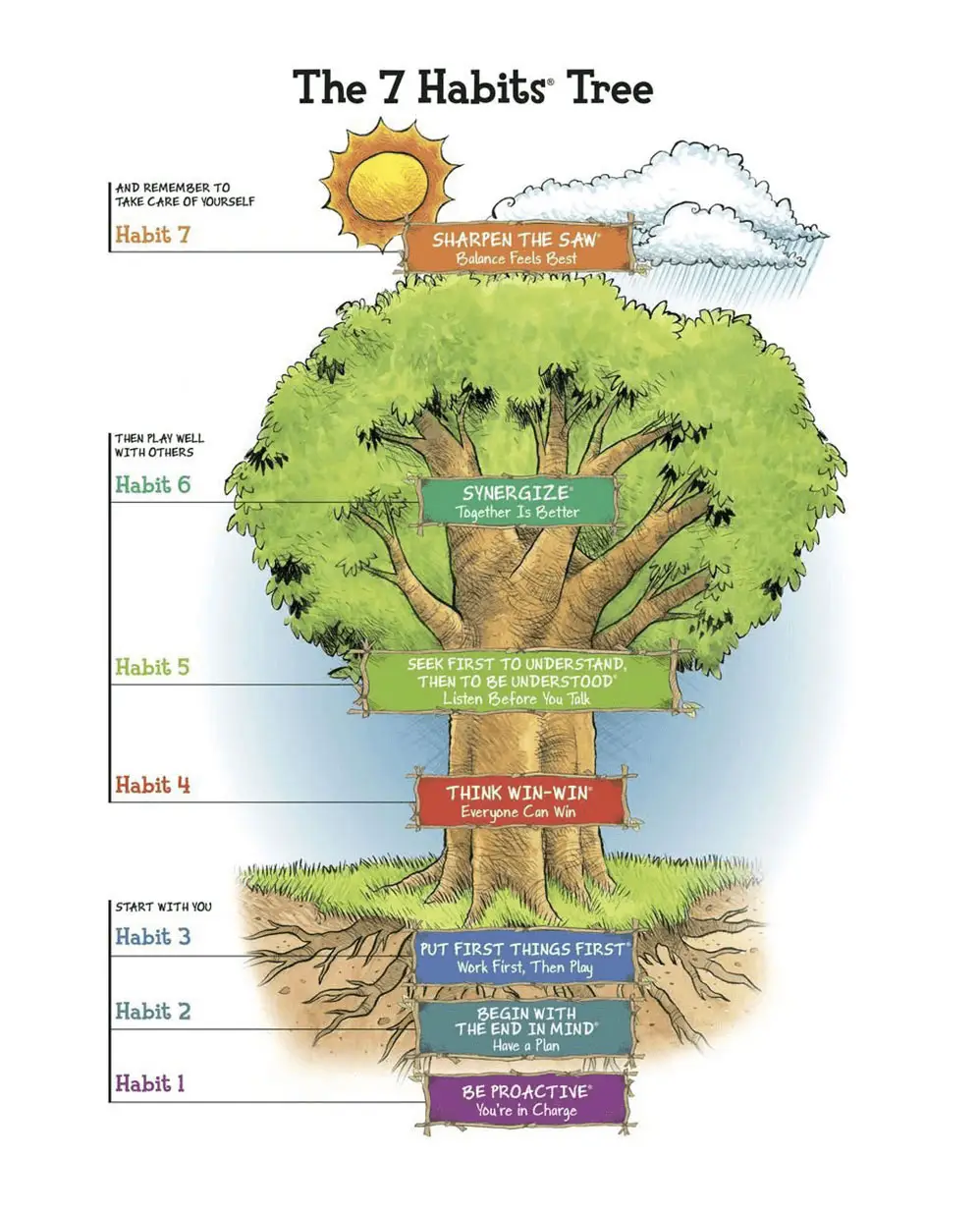
The 7 Habits tree poster uses the analogy of a mature tree to illustrate applying the habits to one’s life. Kids’ language is used to help children relate the habits to their reality.
Much like the tree uses photosynthesis for not only its own health but that of the planet, the Paideia community uses the 7 Habits for whole-person health of not only the individual but also the entirety of humanity.
We encourage all – families, teachers, leaders, and scholars – to study and embrace the 7 Habits of Highly Effective People into their lives.
We promise, if you will embrace these habits you will experience greater peace in your own life and in the life of your family and community.

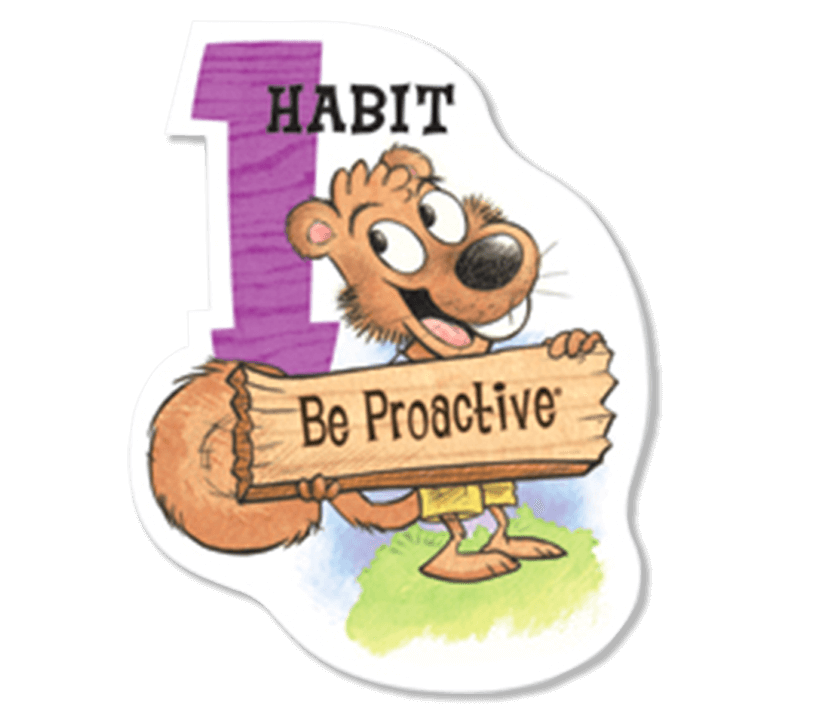
You’re in Charge
I am a responsible person. I take initiative. I choose my actions, attitudes, and moods. I do not blame others for my wrong actions. I do the right thing without being asked, even when no one is looking.
Put the Habit into Practice:
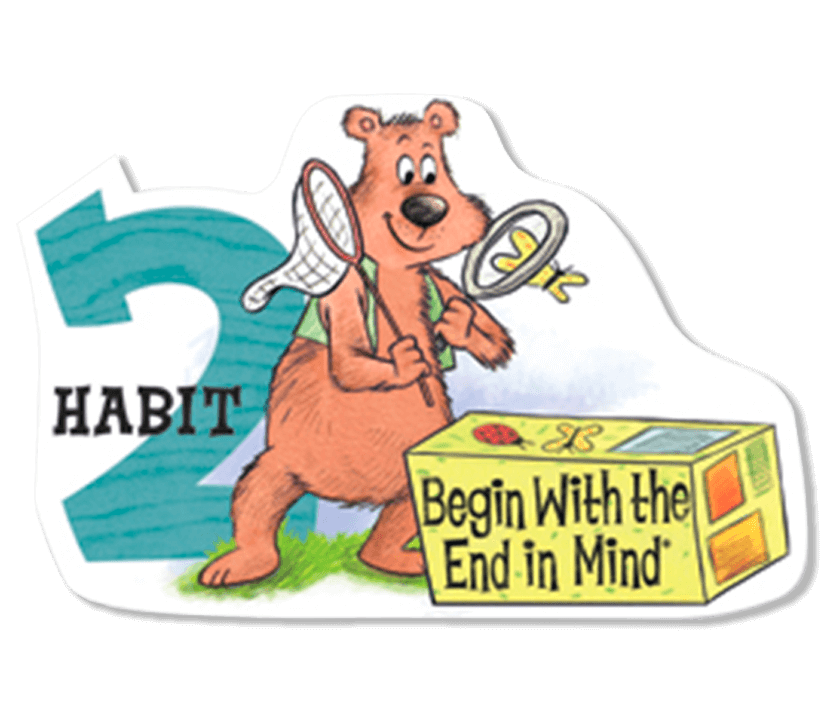
Have a Plan
I plan ahead and set goals. I do things that have meaning and make a difference. I am an important part of my classroom and contribute to my school’s mission and vision. I look for ways to be a good citizen.
Put the Habit into Practice:
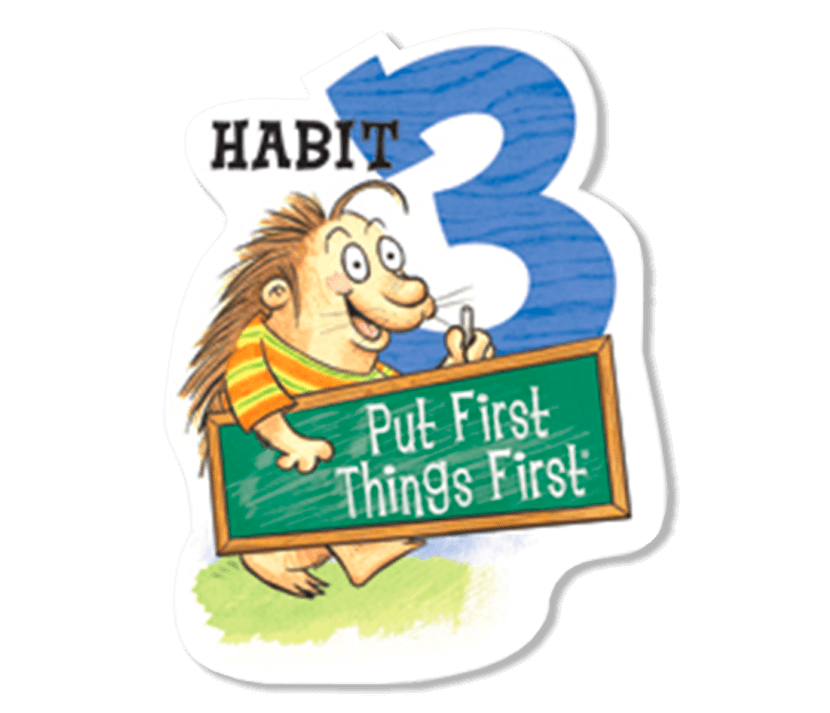
Work First, Then Play
I spend my time on things that are most important. This means I say no to things I know I should not do. I set priorities, make a schedule, and follow my plan. I am disciplined and organized.
Put the Habit into Practice:
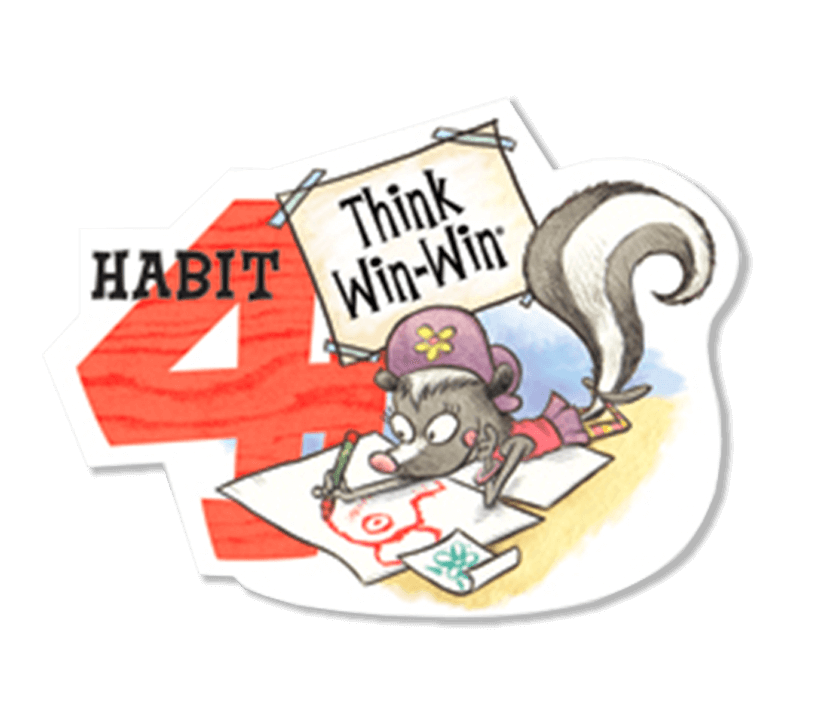
Everyone Can Win
I balance courage for getting what I want with consideration for what others want. I make deposits in others’ Emotional Bank Accounts. When conflicts arise, I look for third alternatives.
Put the Habit into Practice:
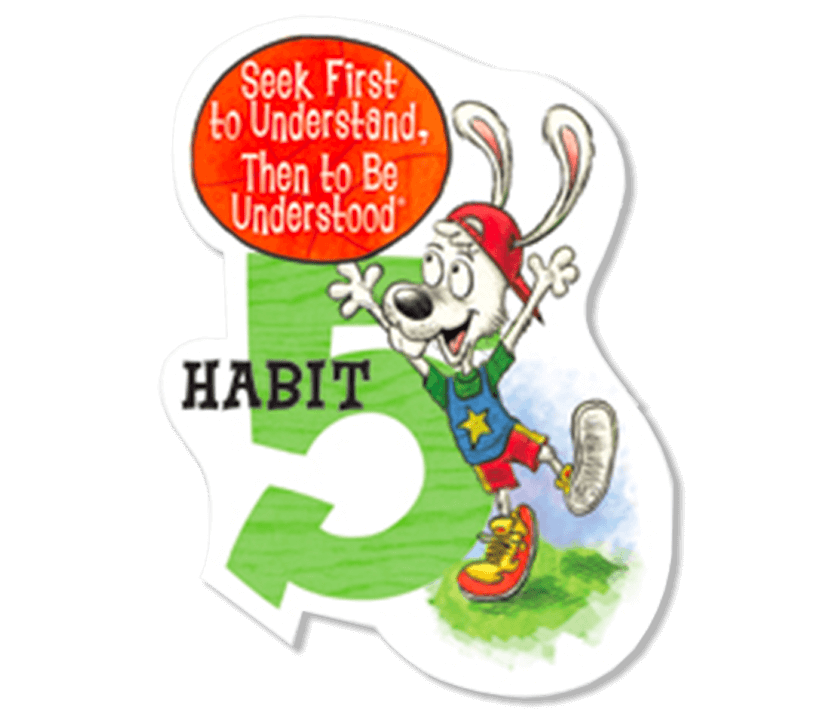
Listen Before You Talk
I listen to other people’s ideas and feelings. I try to see things from their viewpoints. I listen to others without interrupting. I am confident in voicing my ideas. I look people in the eyes when talking.
Put the Habit into Practice:
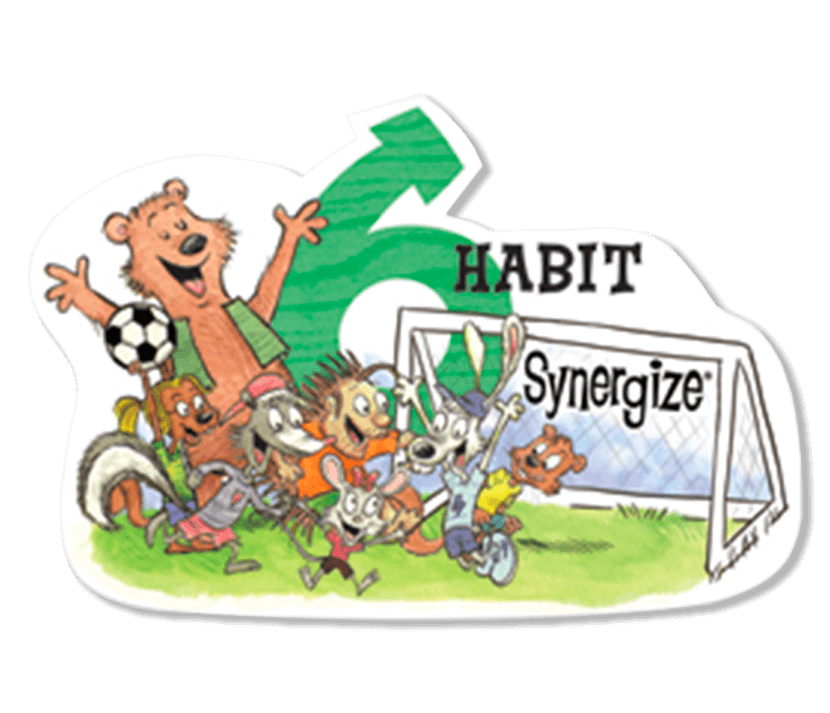
Together Is Better
I value other people’s strengths and learn from them. I get along well with others, even people who are different than me. I work well in groups. I seek out other people’s ideas to solve problems because I know that by teaming with others, we can create better solutions than any one of us can alone. I am humble.
Put the Habit into Practice:
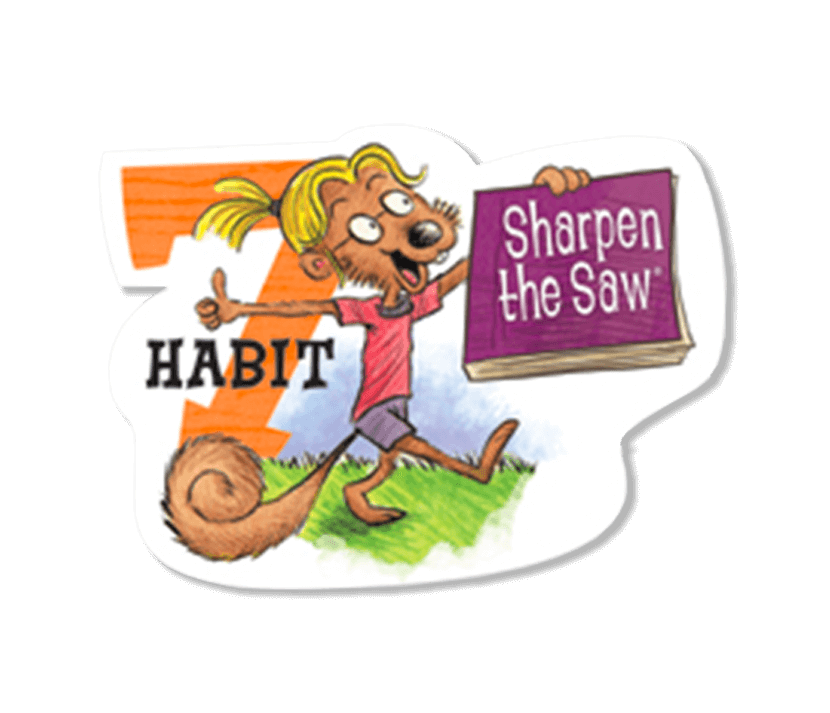
Balance Feels Best
I take care of my body by eating right, exercising, and getting sleep. I spend time with family and friends. I learn in lots of ways and lots of places, not just at school. I find meaningful ways to help others.
Put the Habit into Practice:
As they get older, scholars are further supported to cultivate the 8th habit.
LEARN MOREReady to experience how the 7 habits can help transform your child's life?
INQUIRE NOW